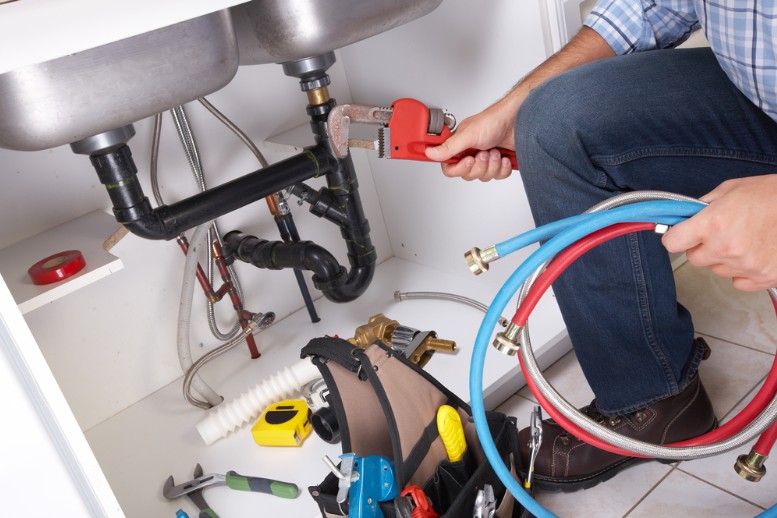A failed plumbing inspection can be costly for businesses, leading to project delays or even temporary shutdowns. Whether you’re managing a restaurant, office building, or retail space, keeping your plumbing up to code is a must for smooth operations. Here, we explore how oversight from a plumber in Harrisburg, PA, can help you avoid fines and unexpected expenses.
Understanding Local Plumbing Codes
Every commercial property must comply with local plumbing codes. These regulations exist for safety, efficiency, and environmental responsibility. Failing to meet these standards can result in fines and potential legal issues.
- Know your local codes – Plumbing standards vary by city and state. Be mindful of your local health and safety regulations.
- Get permits when necessary – Not all forms of plumbing work can be done without permits. Some plumbing upgrades or plumbing repair require official approval.
- Stay ahead of inspections – Regularly check for updates to local codes to avoid non-compliance penalties.
Plumbing codes can keep your business’s water system functioning efficiently and safely.
Addressing Common Plumbing Issues Before an Inspection
If you habitually ignore minor plumbing problems, you might want to rethink your ways. These issues can signal larger systemic failures. Inspectors often look for signs of leaks, low water pressure, and poor drainage, which can indicate serious underlying issues.
- Leaks: Even a small drip can lead to mold growth, water waste, and infrastructure damage.
- Low Water Pressure: Clogged pipes, valve issues, or sediment buildup in water heaters are likely causes of these issues.
- Slow Drainage: Clogged sewer lines can create backups and slow drainage, leading to unsanitary conditions.
Scheduling a professional assessment from a reputable plumbing company helps business owners catch and fix problems before they worsen.
Keeping Drainage and Sewer Lines Clear
Having blocked drains and sewer lines can cause you to fail an inspection. Regular cleaning prevents costly repairs and ensures compliance.
- Schedule routine hydro jetting – These can help clear grease, debris, and scale buildup.
- Install drain strainers – Strainers can prevent food scraps, hair, and solids from clogging pipes.
- Monitor water flow – Slow drains often indicate early-stage blockages.
Expert Tip: “Many business owners overlook sewer line maintenance until a major backup occurs. Routine inspections and cleaning can prevent costly downtime,” quips a certified plumbing inspector.
The Importance of Water Heaters and Backflow Prevention
Water heaters must meet efficiency and safety standards. Inspectors check for proper installation, correct temperature settings, and signs of corrosion. Should problems with these be present, it may be held against the business owner.
- Ensure your heater meets local energy efficiency standards.
- Check for sediment buildup, which can reduce heating efficiency and damage the system.
- Verify that backflow prevention devices function properly. These systems keep contaminated water from entering the potable supply.
Processes Behind Common Plumbing Repairs
Understanding common plumbing repair processes helps businesses prepare for potential fixes before an inspection.
- Leak Repair – Locating the source, shutting off the water supply, and replacing damaged pipes or fittings.
- Drain Clearing – Hydro jetting or snaking to remove blockages in sewer lines.
- Fixture Replacement – Upgrading old faucets, toilets, or water heaters for compliance and efficiency.
DIY Maintenance Tips (And When to Call a Pro)
While some maintenance tasks can be handled in-house, others require no less than a professional plumber. To ensure a successful commercial plumbing inspection, it’s crucial to work with experienced professionals who understand the intricacies of plumbing systems. Companies like Bruno Plumbing & Heating offer expert services that can help identify potential issues before they become costly problems. Their team is well-versed in the latest industry standards and can provide valuable insights into maintaining your plumbing systems efficiently. By partnering with knowledgeable professionals, you can ensure that your commercial property meets all necessary regulations and passes inspections with ease, ultimately saving time and resources in the long run.
DIY Maintenance:
- Check for visible leaks in your plumbing and areas with taps like the kitchen.
- Flush water heaters to remove sediment buildup.
Call a Professional If You Notice:
- Persistent low water pressure.
- Recurring drain clogs despite cleaning efforts.
- Water discoloration or foul odors.
- Grease traps may need professional cleaning to ensure thoroughness.
The Environmental Impact of Plumbing Choices
Consider investing in sustainable plumbing options. These can benefit your businesses, as well as the environment.
- Low-flow toilets and faucets: Fixtures that reduce water usage without sacrificing performance.
- Tankless water heaters: Tankless models use less energy than traditional models.
- Eco-friendly drain cleaners: These can prevent pipe damage and groundwater contamination.
What Happens If You Fail a Plumbing Inspection?
Failing an inspection is something businesses would never want to go through. Should this happen, it can disrupt operations and result in loss of business.
- Immediate repairs required – Delayed compliance can result in fines.
- Business downtime – Non-compliance may mean shutting down affected areas.
- Increased expenses – Emergency repairs often cost more than preventative maintenance.
Checklist for Plumbing Inspection Preparation
Don’t know where to start? Use this checklist to ensure your business is inspection-ready:
- Check for leaks and fix them immediately.
- Test water pressure and drainage efficiency.
- Clean and maintain drains and sewer lines.
- Ensure water heaters are functional and meet code.
Avoid the stress and expenses of a failed inspection by preparing in advance. A professional plumbing service can identify issues before they become costly problems. Be sure to seek expert help to ensure that your business stays compliant.














